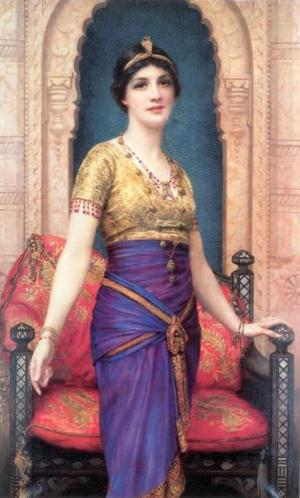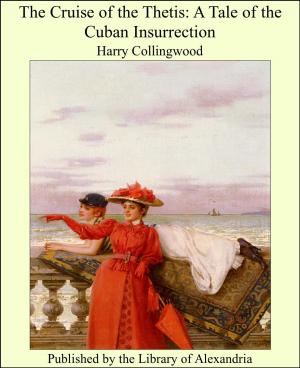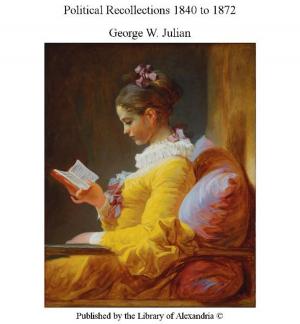| Author: | Adeline Trafton | ISBN: | 9781465553843 |
| Publisher: | Library of Alexandria | Publication: | March 8, 2015 |
| Imprint: | Language: | English |
| Author: | Adeline Trafton |
| ISBN: | 9781465553843 |
| Publisher: | Library of Alexandria |
| Publication: | March 8, 2015 |
| Imprint: | |
| Language: | English |
ABOARD THE STEAMER. We two alone.—"Good by."—"Are you the captain of this ship?"—Wretchedness.—The jolly Englishman and the Yankee.—A sail!—The cattle-man.—The Jersey-man whose bark was on the sea.—Church services under difficulties.—The sweet young English face.—Down into the depths to worship.—"Beware! I stand by the Parson."—Singing to the fishes.—Green Erin.—One long cheer.—Farewell Ireland. WE were going to Europe, Mrs. K. and I—alone, with the exception of the ship's company—unprotected, save by Him who watches over the least of his creatures. We packed our one trunk, upon which both name and nationality were conspicuously blazoned, with the necessaries, not luxuries, of a woman's toilet, and made our simple preparations for departure without a shadow of anxiety. "They who know nothing, fear nothing," said the paterfamilias, but added his consent and blessing. The rain poured in torrents as we drove down to the wharf. But floods could not have dampened our enthusiasm. A wild Irishman, with a suggestion of spirituous things in his air and general appearance, received us at the foot of the plank, one end of which touched earth, the other that unexplored region, the steamer. We followed the direction of his dirty finger, and there fell from our eyes, as it were, scales. In our ignorance, we had expected to find vast space, elegant surroundings, glass, glare, and glitter. We peered into the contracted quarters of the ladies' cabin. One side was filled with boxes and bundles; the other, with the prostrate form of an old lady, her head enveloped in a mammoth ruffle. We explored the saloon. The purser, with a wen and a gilt-banded cap on his head, was flying about like one distracted. An old gentleman similarly attired, with the exception of the wen,—the surgeon as we afterwards learned,—read a large book complacently in one corner, murmuring gently to himself. His upper teeth lacked fixity, so to speak; and as they fell with every word, he had the appearance of gnashing them continually at the invisible author. There was a hurrying to and fro of round, fresh-faced stewards in short jackets, a pushing and pulling of trunks and boxes, the sudden appearance and disappearance of nondescript individuals in slouched hats and water-proofs, the stirring about of heavy feet upon the deck above, the rattling of chains, the 'yo-ing' of hoarse voices, as the sailors pulled at the ropes, and, with it all, that sickening odor of oil, of dead dinners—of everything, so indescribable, so never-to-be-forgotten. Somewhat saddened, and considerably enlightened upon the subject of ocean steamers, we sought our state-room. It boasted two berths (the upper conveniently gained by mounting the stationary wash-stand), and a velvet-covered sofa beneath the large, square window, which last we learned, months later, when reduced to a port-hole for light and air, to appreciate. A rack and half a dozen hooks against the wall completed its furniture. The time of departure arrived. We said the two little words that bring so many tears and heartaches, and ran up on the deck with the rain in our faces, and something that was not all rain in our eyes, for one last look at our friends; but they were hidden from sight. There comes to me a dim recollection of attempting to mount to an inaccessible place: of clinging to wet ropes with the intention of seeing the last of the land; of thinking it, after a time, a senseless proceeding, and of resigning ourselves finally to our berths and inevitable circumstances. Eight bells and the dinner bell; some one darkened our doorway. "What's this? Don't give it up so. D'ye hear the dinner bell?" "Are—are you the captain of this ship?" gasped Mrs. K., feebly, from the sofa. "To be sure, madam. Don't give it up so
ABOARD THE STEAMER. We two alone.—"Good by."—"Are you the captain of this ship?"—Wretchedness.—The jolly Englishman and the Yankee.—A sail!—The cattle-man.—The Jersey-man whose bark was on the sea.—Church services under difficulties.—The sweet young English face.—Down into the depths to worship.—"Beware! I stand by the Parson."—Singing to the fishes.—Green Erin.—One long cheer.—Farewell Ireland. WE were going to Europe, Mrs. K. and I—alone, with the exception of the ship's company—unprotected, save by Him who watches over the least of his creatures. We packed our one trunk, upon which both name and nationality were conspicuously blazoned, with the necessaries, not luxuries, of a woman's toilet, and made our simple preparations for departure without a shadow of anxiety. "They who know nothing, fear nothing," said the paterfamilias, but added his consent and blessing. The rain poured in torrents as we drove down to the wharf. But floods could not have dampened our enthusiasm. A wild Irishman, with a suggestion of spirituous things in his air and general appearance, received us at the foot of the plank, one end of which touched earth, the other that unexplored region, the steamer. We followed the direction of his dirty finger, and there fell from our eyes, as it were, scales. In our ignorance, we had expected to find vast space, elegant surroundings, glass, glare, and glitter. We peered into the contracted quarters of the ladies' cabin. One side was filled with boxes and bundles; the other, with the prostrate form of an old lady, her head enveloped in a mammoth ruffle. We explored the saloon. The purser, with a wen and a gilt-banded cap on his head, was flying about like one distracted. An old gentleman similarly attired, with the exception of the wen,—the surgeon as we afterwards learned,—read a large book complacently in one corner, murmuring gently to himself. His upper teeth lacked fixity, so to speak; and as they fell with every word, he had the appearance of gnashing them continually at the invisible author. There was a hurrying to and fro of round, fresh-faced stewards in short jackets, a pushing and pulling of trunks and boxes, the sudden appearance and disappearance of nondescript individuals in slouched hats and water-proofs, the stirring about of heavy feet upon the deck above, the rattling of chains, the 'yo-ing' of hoarse voices, as the sailors pulled at the ropes, and, with it all, that sickening odor of oil, of dead dinners—of everything, so indescribable, so never-to-be-forgotten. Somewhat saddened, and considerably enlightened upon the subject of ocean steamers, we sought our state-room. It boasted two berths (the upper conveniently gained by mounting the stationary wash-stand), and a velvet-covered sofa beneath the large, square window, which last we learned, months later, when reduced to a port-hole for light and air, to appreciate. A rack and half a dozen hooks against the wall completed its furniture. The time of departure arrived. We said the two little words that bring so many tears and heartaches, and ran up on the deck with the rain in our faces, and something that was not all rain in our eyes, for one last look at our friends; but they were hidden from sight. There comes to me a dim recollection of attempting to mount to an inaccessible place: of clinging to wet ropes with the intention of seeing the last of the land; of thinking it, after a time, a senseless proceeding, and of resigning ourselves finally to our berths and inevitable circumstances. Eight bells and the dinner bell; some one darkened our doorway. "What's this? Don't give it up so. D'ye hear the dinner bell?" "Are—are you the captain of this ship?" gasped Mrs. K., feebly, from the sofa. "To be sure, madam. Don't give it up so















